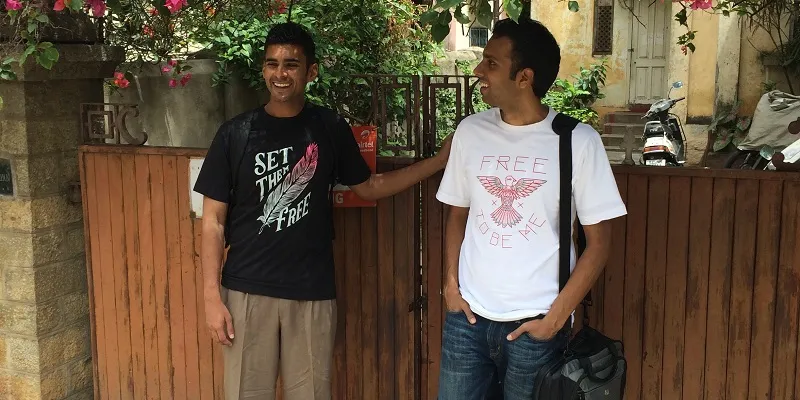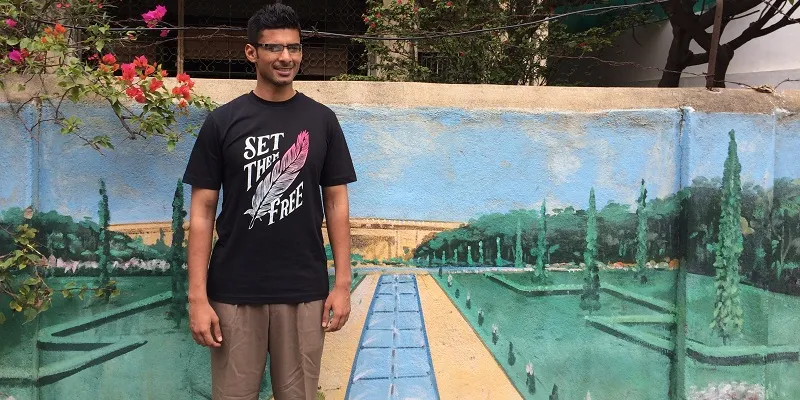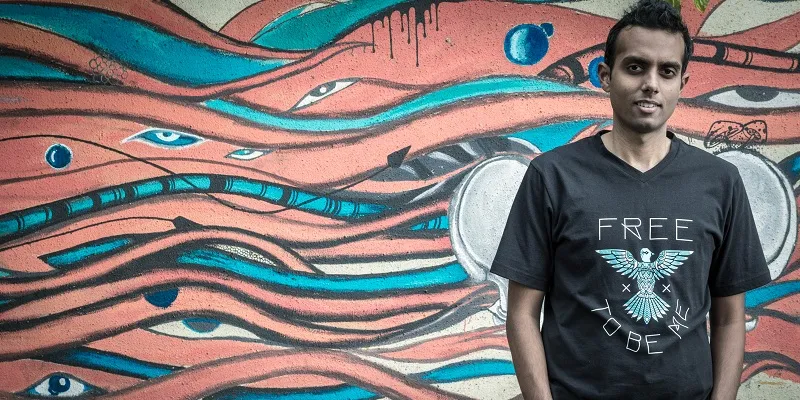ToFU helps sex trafficked women get employment, and runs an apparel brand
ToFU (Threads of Freedom & U), a Bengaluru-based social enterprise and a clothing brand, employs rescued victims of sex trafficking to help them find their way back to life and lead it with dignity. ToFU also runs an apparel brand, where the textile manufacturers are guaranteed a certain number of orders, and in return, they employ the rehabilitated victims.
While ToF is the parent organisation that does the service work, ToFU is their apparel brand. The social enterprise works with non-profit rescue organisations, government agencies, and professional clothing manufacturers to provide job training, employment, counselling, and support for these exploited women, so that they can get back to leading a respected life as truly free individuals. Proceeds of sale done by ToFU are ploughed back into the organisation to help more such victims.

The organisation was started by Pritham Raja (27), Soumil Surana (27), and Adarsh Nungoor (27). Pritham grew up in Muscat, Oman. During his college days, he was active in women’s rights issues. “I worked for organisations that were fighting domestic violence. I once came across a woman whose husband had forced her to sleep with a friend because he had lost a bet. Stories like these horrified me. I also started reading a lot about women issues,” Pritham says.
The life of trafficked women bothered him. He specifically recalls a TED talk by Sunita Krishnan that changed his life. He left a lucrative job in US to come back to India and participate in solving the problem that bothered him so much. Pritham adds, “I went on to speak to Sunita Krishnan in Hyderabad and a couple of organisations asking them where we can help. We realised that we were not trained and skilled enough to participate in rescue operations. That was not our area of expertise.”
One of the biggest problems rescuers faced was that of rehabilitation. Even after a victim was rescued, where they could possibly be taken was still a big question. Pritham and his friends Soumil and Adarsh decided to fix this and they started ToFu. Soumil was a graduate of The Indian School of Business and a major in Industrial Engineering from Georgia Tech, Atlanta. Adarsh runs the service and re-integration arm of the organisation and co-ordinates with various partners to ensure that the reintegration of these women goes as planned.

Rehabilitating the victims of sex trafficking is not an easy task. “There are social stigmas. In many cases, these girls cannot go back to their families because it is the families that would have sold them in the first place. Companies won’t take them as employees because these victims often lack a formal training, and also because they are afraid. These girls often end up spending years together in rehabilitation homes, which hurt them psychologically. It becomes harder for them to come out of their trauma,” Pritham says.
ToFU was started as an attempt to try and fix these issues, and ensure that these victims get better acceptance in the society. Their strategy was innovative yet simple. They went to textile factories and said: “Hey! We’ll guarantee you a certain number of orders for your clothes, and in return, please employ our beneficiaries.” This was a win-win situation for everyone.
ToFU buys apparel from its partner manufacturers, which act as a financial incentive for the factories to hire more and more survivors of trafficking. The clothes bought by ToFU are then sold to other brands or consumers and the revenue from these sales feed the overall programme built to help improve the lives of the victims.
The sex trafficking victims ToFU helps rehabilitate are not only provided with a steady job, but also training, accommodation, counselling, financial assistance, healthcare, and everything else that is required to take care of them until they are fully reintegrated.
On the market end ToFU does two things. Firstly, it works with other companies and brands and produces clothes for them. And secondly, it also runs its own clothing brand. All the profits earned on the market end is pushed back into the service programmes the organisation runs, thus completing a full cycle of the self-sustainable model.
ToFU runs with a fundamental belief – a steady job should be at the heart of any reintegration effort. They have built processes and partnered with garment manufacturers, NGOs, and government organisations to ensure that every sex trafficking survivor who enters their programme is guaranteed a well-paying job.
Presently, ToFU works with a manufacturer who has 14 factories across India, and is in discussions with some leading apparel brands to produce clothes for them through their process. As a brand of clothing, ToFU is also expected to make its debut in leading retail stores soon.

When asked about the challenges he faces while getting his plans implemented, Pritham says, “In order to get these girls work in large factories, the biggest challenge is confidentiality. How do we ensure that the girls are integrated into the workforce without eyebrows being raised? Asking these women to work in a separate line would certainly not help. So we came up with a credit system in which the manufacturer gets a credit for every man hour a rehabilitated woman works for them, and a credit point is debited as we place orders from them. Except the factory owner and the HR, no one knows about the programme. All these processes ensure the confidentiality of the woman is maintained. This ensured they win their lives back. We are very particular about the confidentiality.”
ToFU’s current plan is expansion. Help as many victims as possible. Through a crowdfunding campaign done in the US last year, the organisation has raised $25,000 and is currently using those funds to build their network across Karnataka. The company is working with the Department of Women and Child, Karnataka Government, International Justice Mission, and NGOs like Sneha, and Vidyaranya.
So far, ToFU has successfully employed 28 women. Every victim they have come across is employed and looking forward to a better life. The organisation currently has the potential to employ over 100 more through their current partners. Growth is the only option. Pritham says, “Every year 3,000–4,000 victims are rescued from sex trafficking racket in the country. We want to reach them all.”







